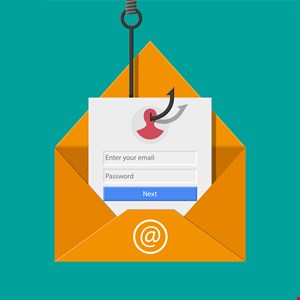- These are my top 15 favorite Memorial Day lawn and outdoor deals right now
- My favorite Memorial Day TV deals 2025: Save up to $5,000 on big-screen TVs
- I'm a laptop expert, and these are the Memorial Day laptop deals I'd grab this weekend
- I'm an audio expert and these are the Memorial Day headphone deals I'd recommend to my friends and family
- I'm a health tech expert and these are the Memorial Day sales fitness enthusiasts should pick up
#COVID19 Phishing Emails Surge 500% on Omicron Concerns

The latest COVID-19 variant has led to a 521% increase in phishing attacks using the virus as a lure to trick users into clicking, according to Barracuda Networks.
Cyber-criminals often use newsworthy events in their social engineering attacks, and COVID-19 provided a bumper opportunity when it emerged in 2020.
The security vendor observed a 667% month-on-month surge in COVID-19 phishing emails from February to March that year. It recorded another significant increase when new vaccines were released at the start of 2021.
Now public concern over the highly transmissible Omicron variant is catching the eye of phishers.
Among the tactics used to trick users into clicking on malicious links and/or entering personal details are offers of counterfeit or unauthorized COVID-19 tests and protective equipment such as masks or gloves.
Some impersonate testing labs and providers, or even employees sharing their results, said Barracuda.
In other phishing emails, the user may receive a fake notification for an unpaid order of tests and is urged to provide their PayPal details to complete delivery of the kit, the vendor claimed.
Barracuda Networks CTO, Fleming Shi, said the answer lies in improving employee phishing awareness training and plugging in advanced email security.
“Capitalizing on the chaos of the pandemic is not a new trend in the world of cybercrime. Yet with constantly evolving tactics, and new trends to latch on to, it’s easy to see why scammers are not giving up on this trick,” he added.
“Just like the threat of COVID-19, pandemic-themed scams are not going to disappear overnight, but fortunately, there are a number of tactics that businesses and consumers can employ to ensure they remain protected.”
In related news, a Comparitech study this week claimed that unscrupulous healthcare workers are enabling a massive black market in COVID-19 digital vaccination certificates and passes.
The researchers found dark web adverts looking for any such workers who empathize with the anti-vaxxers buying these passes.
“When someone buys a fraudulent certificate, they must first sign up for their country’s respective COVID vaccination database. They send their name, PIN number and other necessary info to the vendor,” Comparitech explained.
“A doctor or other healthcare worker marks that person’s record with confirmed vaccination. The buyer’s QR code then becomes valid. It takes just a few hours for the process to complete once a purchase is made.”

